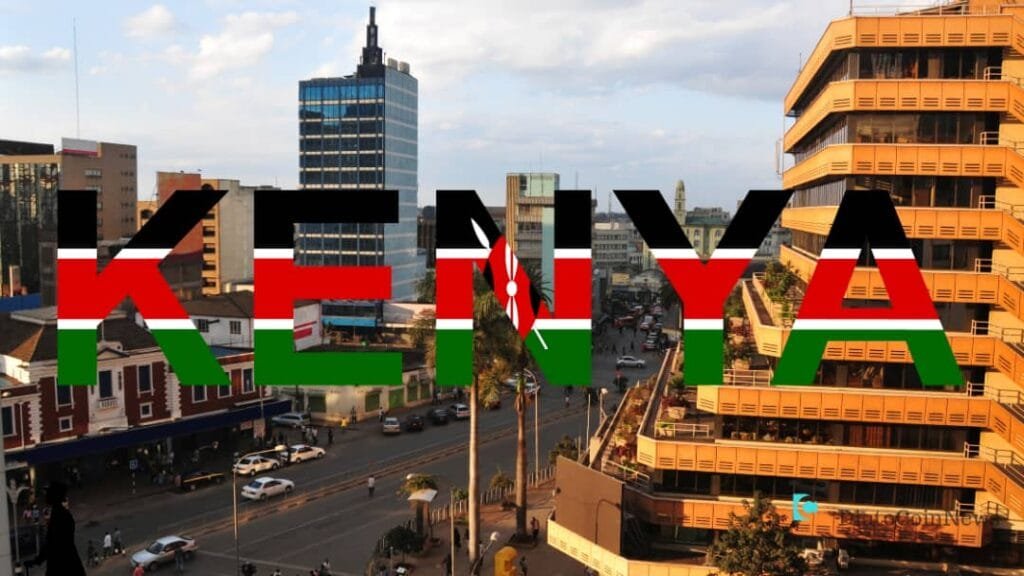Nigeria had released the draft on national blockchain adoption strategy for the national adoption of Blockchain Tech and DLT in the region. It was recently released by the National Information Technology Development Agency (NITDA).
For the government, the concern has been on how the technology can be used to foster healthy growth of the nation’s digital economy and safety.
This blockchain adoption strategy in Nigeria aims to promote Blockchain technology in Nigeria and help in mitigating the risks regarding its implementation by government agencies, and corporate organizations.
The strategy shall support the government to unleash the potential of blockchain and distributed ledger technologies (DLT) in the country, by supporting the digital transformation in several sectors and preventing risks related to their use.
The roadmap focuses on several key areas including:
- Regulation
- Skills
- Capacity Building
- Innovation
- Investment
- International Competitiveness and collaboration.
Potential use cases in government include:
- National Identity Management
- Healthcare
- Internal Revenue Monitoring
- Voting
- Secure Financial Services
- Registries.
According to NITDA, a survey conducted in 2019 on over 70 blockchain start-ups in Nigeria by Blockchain Nigeria User Group, an active community of blockchain developers, investors, entrepreneurs, crypto traders, and enthusiasts revealed that these Blockchain journeys were clearly riddled with challenges skewed towards adoption than implementation.
It shows that companies had ventured into blockchain in different operational landscapes with more emphasis on finance, trading exchanges, wallet services and blockchain education, amongst others.
“The National Digital Economy Policy and Strategy has been developed to reposition the Nigerian Economy to take advantage of the many opportunities that digital technologies provide.”
NITDA
NITDA notes that Nigeria has no legal framework or regulation guiding DLT/blockchain technology adoption. The organisation confirms that a circular has been released by the Central Bank of Nigeria prohibiting the trading of cryptocurrencies by financial institutions in Nigeria.

According to the circular, the CBN stated that any financial institution supporting the use of virtual currencies does so at its own risk. This caution is said to be pending “substantive regulation or decision by the CBN as they are not legal tender in Nigeria.”
This strategy for the Blockchain adoption is built on the following 6 key initiatives:
- Establishment of Nigeria Blockchain Consortium.
- Strengthening of the Regulatory and legal framework.
- Focus on the provision of National Digital Identity.
- Promotion of Blockchain digital literacy and awareness.
- Creation of Blockchain business incentive programmes.
- Establishment of a national blockchain sandbox for proof of concepts and pilot implementation.
Nigeria Blockchain Consortium: A Nigeria Blockchain Consortium (NBC) to be constituted and prioritized with the primary objective to drive these initiatives and will initially be expected to consider how to effectively apply the use of this technology in public sector processes and services. The Blockchain Task Force (BTF) is to be championed by the National Digital Economy Council (NDEC) and membership is to be drawn from key stakeholder groups, relevant government agencies, and the private operators.
Regulatory Framework: The government seeks to establish a regulatory environment that is conducive to innovation and growth, to take advantage of the opportunities available. The regulatory outcomes may be guided by the Oxford Blockchain Regulation Framework outlined below.
National Digital Identity Framework: A program that would allow more government services to be available to people and businesses digitally at any time. The framework is to include everything from the policy and processes to the technology and systems.
Blockchain Business Incentives: The strategy also supports the emergence of new services and industries that are enabled by emerging technologies such as Blockchain. Blockchain technology adoption provides opportunities by creating new business models fostering job creation. By promoting blockchain adoption in public services through pilot programmes, it will have a replica effect in the private sector by springing up new blockchain business models. Government incentivised programmes for SMEs and start-ups also would have a positive effect on adoption.
Blockchain Digital Literacy and Awareness: Emerging technologies such as Blockchain have been included and would be given emphasis in the curriculum, while implementing the policies and strategies of this pillar. This strategy will be presented in key Business forums and industry-related organizations for identifying use cases, modelling proof of concepts (POC) and pilot implementations.
National Blockchain Sandbox: This strategy having mentioned the establishment of a Blockchain Task Force (BTF) to drive regulation and legal framework development, it has necessitated the creation of a blockchain sandbox framework for developers and non-developers alike to innovate and test run their ideas without fear of breaches and sanctions. The National Blockchain Sandbox will be championed by the key regulators mainly NITDA, CBN, FIRS, SEC, NDIC and others alike.
According to the draft national blockchain adoption strategy released by NITDA, these are the top key Stakeholders for the blockchain adoption and implementation in Nigeria. They include:
- Federal Ministry of Communication and Digital Economy
- National Information Technology Development Agency (NITDA)
- Central Bank of Nigeria (CBN)
- Nigeria Deposit Insurance Corporation (NDIC)
- Securities and Exchange Commission (SEC)
- Nigeria Immigration Service (NIS)
- Nigeria Inter-Bank Settlement System (NIBSS)
- Ministry of Budget and National Planning
- Nigeria Communication Commission (NCC)
- National Pension Commission (PENCOM)
- Nigeria Insurance Commission (NAICOM)
- Fintech Association of Nigeria
- National Bureau of Statistic (NBS)
- National Identity Management Commission (NIMC)
- Independent National Electoral Commission (INEC)
- Federal Inland Revenue Service (FIRS)
- Nigeria Bar Association (NBA)
- Corporate Affairs Commission (CAC)
- Nigeria Customs Service (NCS)
- Financial System Strategy (FSS2020)
- Nigeria University Commission (NUC)
- Association of Bureau de Change of Nigeria
- Code of Conduct Bureau (CCB)
- Investment Promotion Council
- Nigeria Society of Engineers (NSE)
- Stakeholders in Blockchain Technology Association of Nigeria (SIBAN)
- Relevant Blockchain User Groups and Technology Associations.
Going forward, the Local Organising Committee (LOC) will be discussing the adoption strategies and procedures for implementation pending a later release of the roadmap for proper implementation.
NITDA affirms that the creation of the Draft National Blockchain Adoption Strategy is geared towards developing common standards for the use of blockchain by companies in Nigeria. The draft will also create a regulatory environment safe for adoption across the country.
Discover more from DiutoCoinNews
Subscribe to get the latest posts sent to your email.













